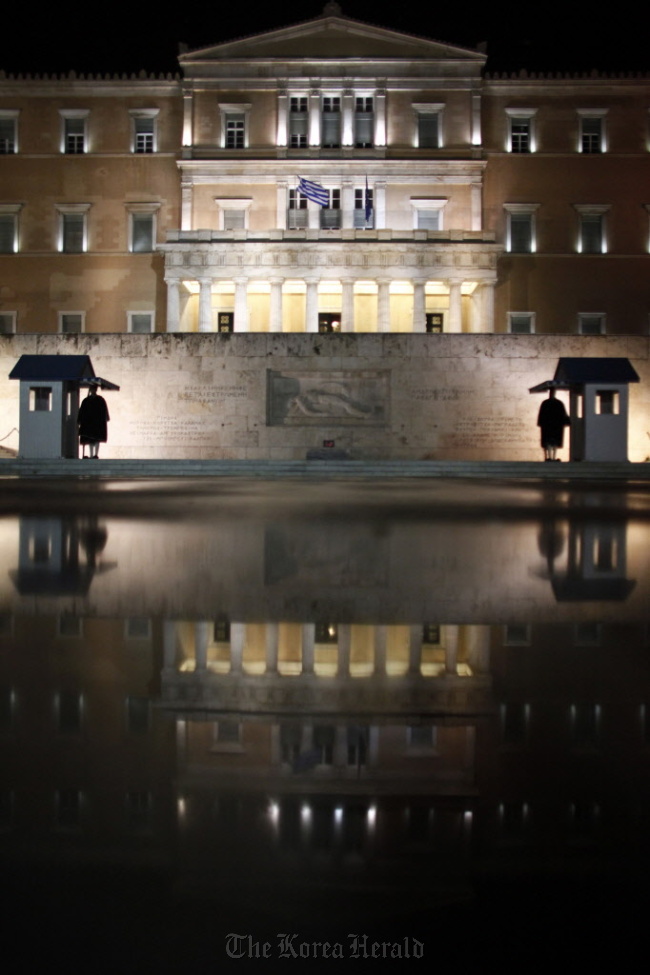ATHENS (AFP) ― Greek President Karolos Papoulias said Sunday the nation’s people have given all they have to drag the country out of its crippling economic crisis, and voiced hope it would end soon.
Papoulias said recovery from the crisis, which has made the heavily indebted country dependent on international aid for two years, has to come “soon, because you cannot ask more from these people who have given everything.”
Speaking after an annual military parade, the president, nonetheless expressed his optimism that “despite the hardships, Greek people will exit the crisis.”
Greece, heading for a sixth straight year of recession, has been dependent on loans from the “troika” of European Union, European Central Bank and International Monetary Fund to stay afloat.
 |
The Greek parliament building in Athens. ( Bloomberg) |
Eurozone ministers and officials are to hold a series of meetings in coming days to decide whether Athens has done enough to unlock a 31.5-billion euro ($41-billion) slice of aid and whether a Greek request for two extra years to implement reforms should be granted.
In Austria, European Central Bank governing council member Ewald Nowotny took Greece’s side, saying that Athens must be given more time to sort out its finances.
Nowotny, also Austria’s top central banker, noted in an interview with national broadcaster ORF that Greece has “a long-term problem that is not solvable in two years and without outside help.”
“Either we are ready to help over the long-term or there is a risk of collapse, with all of its consequences,” Nowotny said.
He added that decisions have to be made quickly, echoing Papoulias’ call.
Papoulias was speaking at the end of an annual military parade in the northern city of Thessaloniki to celebrate Greek resistance to the Axis powers during World War II. This year’s event also marked the end of a three-day celebration commemorating the Balkan Wars of 1912-1914 that restored Thessaloniki to Greek control.
Underlining Greece’s contribution in World War II, Papoulias said many people outside Greece want to “forget” about it, because they don’t want to “recognise what Europe owes to this small Greece.”
The Thessaloniki event and an annual student parade in Athens both took place under increased security measures to avoid potential trouble.
In addition to a heavy police presence, special traffic regulations were imposed in the northern city, while Athens city center was sealed off from early in the morning.
Anti-austerity protests organised around Greece by members of radical leftist party Syriza and communist-affiliated group Pame mostly took place without incident.
Tension flared briefly in Thessaloniki when some protesters tried in vain to storm the police blockade. They later then moved to another part of the city and held an uneventful march there, state broadcaster Net reported.
In the city of Heraklion, on the southern island of Crete, protesters were repelled by police when they forcefully tried to enter the square where the parade took place and three people were detained, the Athens News Agency reported.
“We have a historical duty to pass down to future generations a country rid of the past’s mistakes,” said Education Minister Constantinos Arvanitopoulos after the Athens parade, where one of the students protested by walking barefoot.
Last year, thousands of anti-austerity protesters had blocked the Thessaloniki parade, forcing the president to walk away minutes before the event began.
Tension had also run high at many of the student parades around the country and minor scuffles had broken out between protesters and police in various cities.








